
Review: The First Frost (2025) 难哄
Summary: Wen Yi Fan (ft Zhang Ruo Nan 章若楠) returns to her hometown of Nan Wu with hopes of becoming a news journalist. She reconnects with her high school friend Zhong Si Qiao (ft. Zhang Miao Yi 张淼怡) and they check out a new bar called “Jia Ban”. To their surprise, they find out that the owner of the bar is Sang Yan (ft. Bai Jing Ting 白敬亭), their fellow high school classmate. Wen Yi Fan is renting a room in a seedy co-ed space, but after almost getting raped, breaks her lease and finds a new living space. Her new roommate shortly moves out due to her new job prospects. Sang Yan takes over the lease as his apartment is undergoing renovation. Sang Yan gradually learns the reason why Wen Yi Fan left their hometown all those years ago.
Total Episode Count: 32
Initial Airing Date: Feb 18, 2025
Platform: Youku + Netflix
Short Review 6/10 [10 episodes] – A slow paced, meandering drama that diminishes the trauma of sexual harassment and assault on women under the guise of “love”. The poor acting and forced chemistry from the leads made this painful and infuriating to watch.
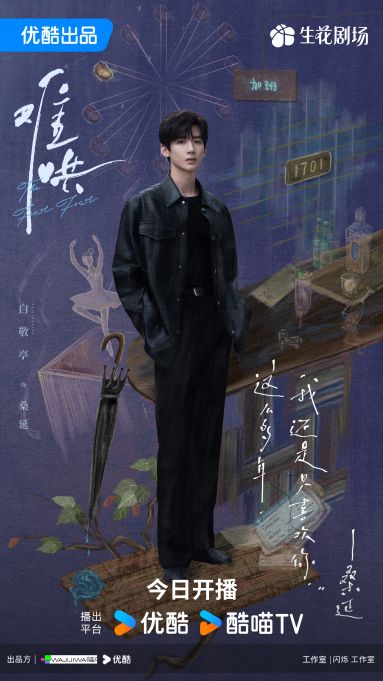
Sang Yan 桑延 Bai Jing Ting 白敬亭
Owner of the bar "Jia Ban", he's a high school classmate of Wen Yi Fan who's feelings towards her were never resolved

Wen Yi Fan 温以凡 zhang ruo nan 章若楠
Aspiring news journalist who returns to her hometown after 7 years. She's not ready to reopen the wounds of her past
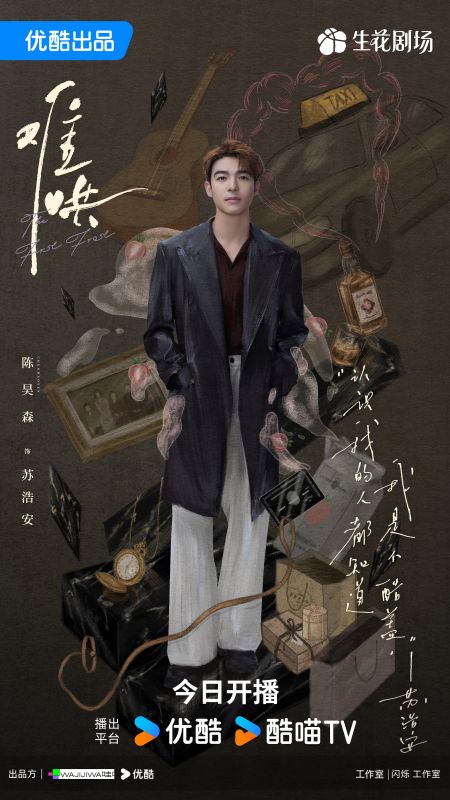
Su Hao An 苏浩安 Chen Hao Sen 陈昊森
Best friend of Sang Yan and fellow high school classmate
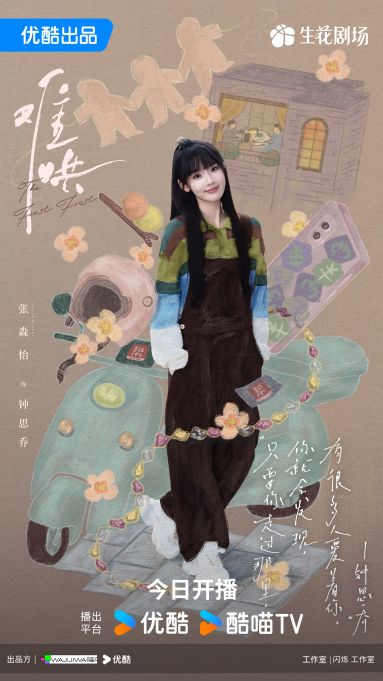
Zhong Si Qiao 钟思乔 Zhang Miao Yi 张淼怡
Best friend of Wen Yi Fan who reconnects with Wen Yi Fan after she returns home.
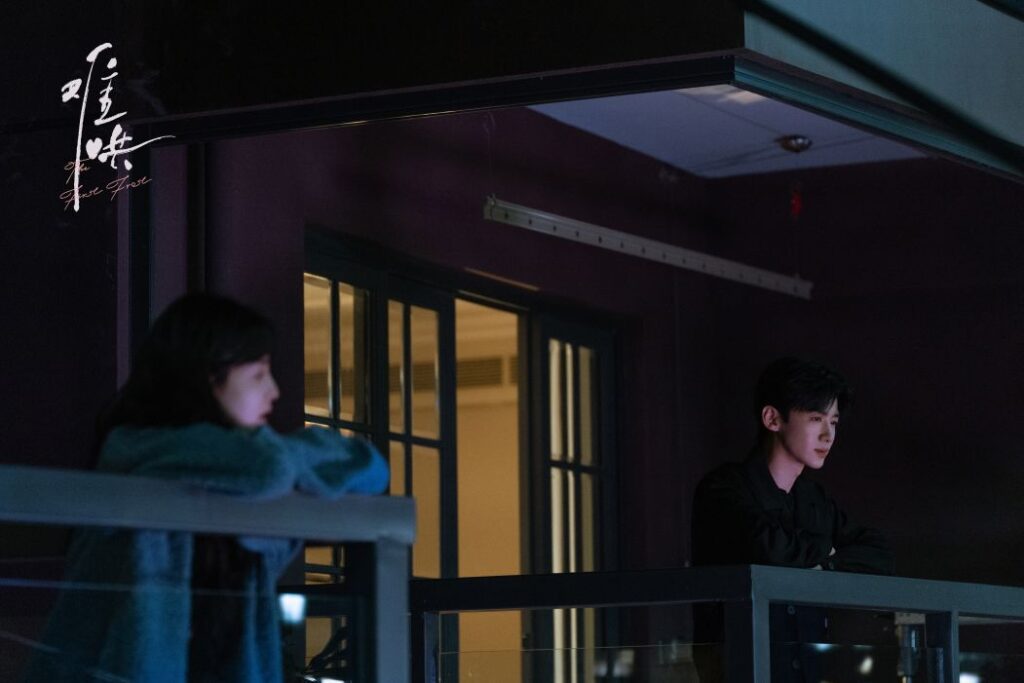
Overall Thoughts
As one of the most eagerly awaited dramas of 2025, this adaptation of a beloved romance novel generated immense buzz before its release. With a strong built-in fanbase and leading roles that were bound to attract attention, initial reactions to Bai Jing Ting and Zhang Ruo Nan’s casting were largely positive. For Bai Jing Ting, in particular, this drama marked an important comeback after maintaining a low profile throughout 2024, following his poorly received performance at the 2024 Spring Gala. Expectations were high, and the drama made an impressive debut, swiftly surpassing 10,000 on Youku’s popularity index while maintaining a strong presence on social media. However, its premiere coincided with the highly publicized divorce announcement of Chen Xiao and Chen Yan Xi, which somewhat muted its initial reception.
Despite the promising start, this drama has been an infuriating disappointment. The characters are lifeless, the plot meanders without substance, and its attempt to address the serious issue of sexual assault is superficial at best. Rather than handling the subject matter with the depth and nuance it deserves, the drama reduces it to a mere plot device in the name of romance, ultimately trivializing an important discourse.
Determined to give the drama a fair chance, I pushed through the first ten episodes, only to find that very little actually happens. The pacing is sluggish, with events that could have been effectively condensed into five episodes instead stretching aimlessly. I intentionally avoided reading the novel beforehand, having heard that book fans were deeply disappointed with this adaptation. Even without prior familiarity with the source material, I understand their frustration. Wen Yi Fan, as a protagonist, lacks any defining personality beyond being “nice,” while Sang Yan comes across as a possessive bully with an unhealthy fixation on her. Their relationship dynamic is not only unconvincing but also problematic.
While it is possible that the drama improves in later episodes, I have no desire to continue. This adaptation squanders its potential, leaving little reason to stay invested. Bai Jing Ting might be somewhat happy with the initial ratings but public discourse have largely left him behind, focusing instead on his poor performance and problematic nature of the script. Hopefully he’ll have better luck with his next drama.
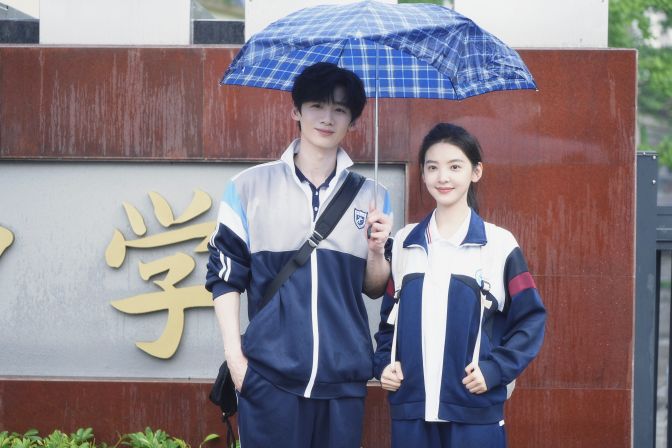
What I Liked
Beautiful Cinematography – One of the drama’s strongest aspects is its visually captivating cinematography. The production boasts a polished, almost dreamlike aesthetic, resembling an extended music video with its glossy sheen and ethereal atmosphere. Every frame is meticulously composed, enhancing the drama’s romantic and introspective tone. My minor gripe is that drama fails to fully utilize the charm and character of Chongqing, the city in which it is set. Perhaps I’m just biased because I’ve been to the city several times before.
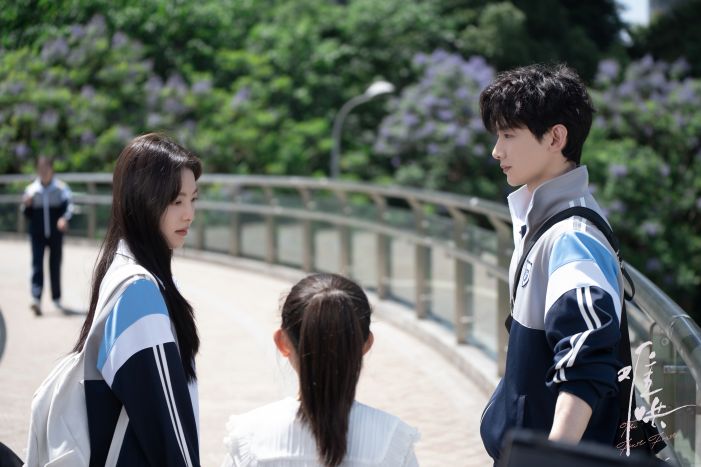
My major issues with this drama (Minor Spoilers)
- A Male-Centric Narrative That Undermines Female Autonomy – My most frustrating grip with this drama is its distinctly male gaze, which repeatedly diminishes the autonomy of the female lead. Wen Yi Fan is portrayed as a passive character who relies on a male savior to resolve her conflicts, particularly in situations of sexual harassment and assault. The drama attempts to address these serious topics but ultimately fails in its execution. Within the first ten episodes, Wen Yi Fan is sexually harassed multiple times, even facing attempted assault, yet the perpetrators face little to no consequences. The only instances in which justice is served occur when Sang Yan steps in to physically confront these men. In one particularly troubling scene, a man exposes himself to Wen Yi Fan, and while Wen Yi Fan does report the incident to the police, the man’s actions are dismissed because he was “acting” for a school project and faces no repercussions. This sends an unsettling message: that women must endure harassment until a male figure intervenes on their behalf. What’s more frustrating is that Wen Yi Fan shows no reaction to these events, learning nothing from her experiences. While China has not had its own MeToo movement, there has been a growing awareness of gender power imbalances and women’s autonomy. Unfortunately, this drama does not reflect that progress, instead reinforcing outdated notions of female helplessness.
- A Problematic Romance Disguised as Romantic Tension – The relationship between Sang Yan and Wen Yi Fan is equally problematic, though the drama attempts to frame it as a slow-burn romance. Sang Yan consistently gives Wen Yi Fan the cold shoulder, rebuffing her verbally while secretly caring about her well-being. Wen Yi Fan, understandably confused, tries to maintain her distance, yet Sang Yan refuses to respect her boundaries. He persistently forces his presence into her life without ever clearly communicating his intentions, reducing Wen Yi Fan to a woman constantly apologizing and adjusting her behavior to accommodate his erratic attitude. Even in flashbacks to their high school days, Sang Yan is shown following Wen Yi Fan in an attempt to uncover her family situation. While the drama seemingly presents this as romantic devotion, it instead comes across as intrusive, if not outright stalker-like behavior. Based on the trajectory of the storyline, it is easy to predict where the drama is headed. However, it is disappointing that Wen Yi Fan is given so little agency, continually being pushed around by everyone in her life. Instead of portraying a nuanced, independent female lead, the drama reinforces a troubling dynamic in which Wen Yi Fan’s existence is defined by the men around her.
- The Soulless Zhang Ruo Nan – Zhang Ruo Nan is undeniably a beautiful actress and the idealized dream girl for millions of Chinese men, as evidenced by her immense popularity on Douyin, where one of her videos has garnered over 10 million likes. However, her portrayal of Wen Yi Fan falls disappointingly flat. Her performance lacks depth, with an overall wooden delivery that fails to bring the character to life. From her expressions to her body language and speech, she comes across as a beautiful yet lifeless doll, devoid of emotion or personality. Wen Yi Fan is consistently mistreated by those around her—including complete strangers—yet she passively endures it without resistance. She apologizes excessively, even in situations where she bears no fault. While the character has undoubtedly suffered severe trauma and injustice over the years, Zhang Ruo Nan’s portrayal lacks any clear motivation or personal drive. It is difficult to comprehend why so many male characters in the drama are drawn to her when her defining trait appears to be simply “kindness”. In the first ten episodes, there is little evidence of independent growth or an effort to overcome her past hardships. Instead, she simply accepts the mild bullying from Sang Yan without challenge, sexual assault attempts from others, and nastiness from her family. This lack of character development makes it difficult to connect with her journey because so far, there has been no journey or growth.
- The Pretentious Bai Jing Ting – Bai Jing Ting makes a concerted effort to bring Sang Yan to life, but his performance ultimately feels excessive and forced. Rather than capturing the essence of a man carefully and sincerely trying to win over his high school crush, he instead comes across as overbearing—at times more of a bully and stalker than a romantic lead. His approach involves giving Wen Yi Fan the cold shoulder while simultaneously performing acts of kindness, only to later use these gestures as leverage to force interactions with her. From Wen Yi Fan’s perspective, it’s basically whiplash and not a basis for healthy relationship. A common critique among viewers is that his performance feels 装 (pretentious), and I agree. There is a noticeable disconnect between Bai Jing Ting and the character of Sang Yan. Rather than fully embodying the role, his portrayal consistently feels like Bai Jing Ting playing Sang Yan, making it difficult to truly immerse in the character. Additionally, his heavy Beijing accent results in frequent mumbling, making his dialogue difficult to understand most of the time. I couldn’t understand him without the subtitles. While he puts in significant effort to create chemistry with his co-star Zhang Ruo Nan, their dynamic lacks natural spark. Any romantic tension or “heart-fluttering” moments are largely the result of the cinematography and atmospheric direction rather than genuine chemistry between the leads. Sang Yan finally shows some growth in the 10th episode, but at this point, I am not invested in this relationship.
- A Lack of Professionalism Undermines the Drama’s Realism – While this is a romantic idol drama, there is little effort to maintain even a semblance of realism, particularly in the portrayal of professionalism among the main characters. A glaring example is Wen Yi Fan, who aspires to be a news journalist yet consistently exhibits a lack of professionalism in her role. One particularly egregious instance occurs when she is given the prestigious opportunity to report live on New Year’s Eve for the city. While her choice of an oversized blazer and baggy pants could be attributed to the drama’s costume department, the more concerning issue is director’s decision to have her wear a mask during her live broadcast—solely to avoid being recognized by Sang Yan. No one else on screen, including the New Year’s Eve revelers, her cameraman, or even her reporting partner, is wearing a mask. This raises obvious questions about her credibility as a journalist, as it is baffling how she could be clearly heard on live television while wearing one or how viewers would react to seeing a reporter wearing a mask on screen when no one else is. Such an oversight not only detracts from the drama’s believability but also makes it difficult to take Wen Yi Fan’s character seriously in her professional ambitions.
- Unclear Career Paths further contributing to the Lack of Realism – Apart from the lack of professionalism, the drama is vague and has an unrealistic portrayal of the main characters’ careers. Sang Yan, for instance, comes from a wealthy family and spends most of his time idly managing a bar. When he later secures a position at a gaming company, it is not due to any genuine career aspirations but simply because Wen Yi Fan questions how he spends his days. The implication that his primary motivation for employment is to impress his crush raises concerns about his character development—what does he actually want to achieve? Similarly, his best friend, Su Hao An, also works at the same gaming company, yet he drives a Porsche and regularly purchases designer bags for his girlfriend. While his family’s wealth is acknowledged, the financial feasibility of such a lavish lifestyle at the age of 25 remains dubious. Another example is Wen Yi Fan’s best friend, Zhong Si Qiao, a college graduate who takes on various odd jobs, including working as a courier. While she is portrayed as hardworking, it is perplexing that a university graduate—particularly in a country where higher education is still not universally accessible—would be content with a series of temporary jobs. This depiction feels detached from reality and diminishes the struggles of those for whom such work is not a choice but a necessity. Overall, the drama fails to create a believable professional landscape for its characters. Their careers often feel superficial, contributing to the sense that they are merely drifting through a fabricated world rather than navigating real-life challenges and ambitions. Many of them do not appear to have real jobs, making it difficult to take their professional lives seriously.
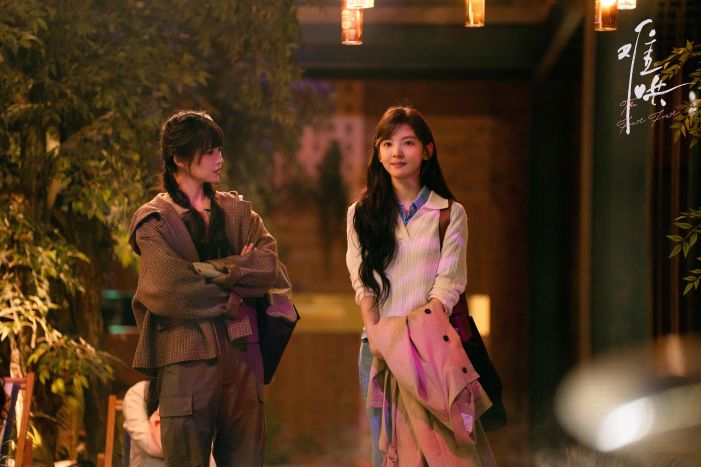
Stray Observations
Karen and I watched a few episodes together and we were joking how there’s no way the people of Chongqing walked this slowly or was the city this clean. Chongqing is a hustle and bustle city with people selling their wares everywhere. It feels alive. The city shown in the drama feels overtly clean and somewhat devoid of life. I wish we saw some more of that liveliness in the drama.

